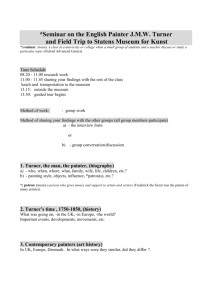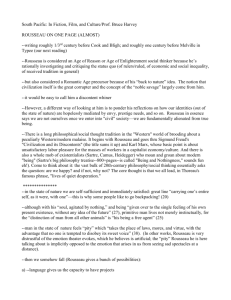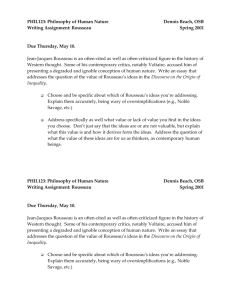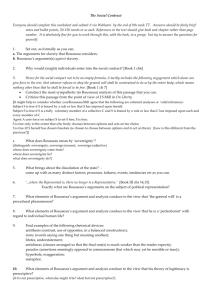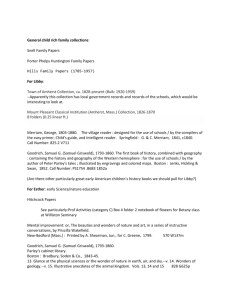Origins of Our Government
advertisement
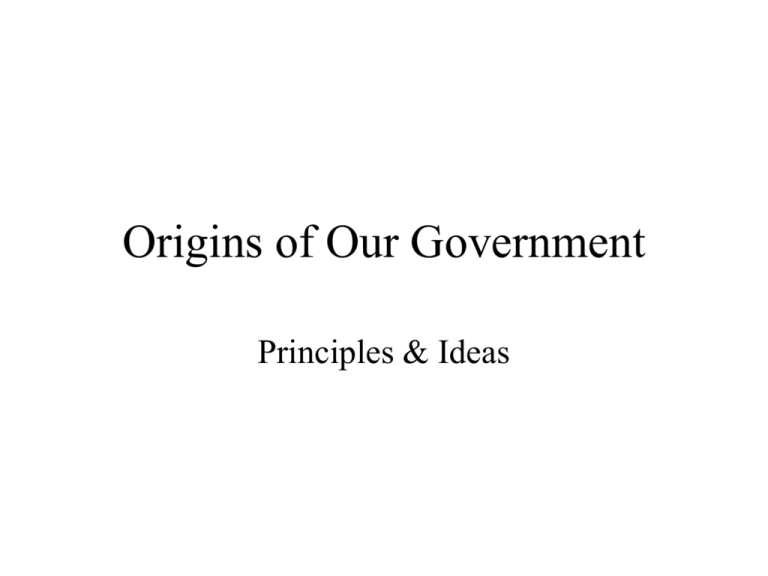
Origins of Our Government Principles & Ideas The Idea of a Society • Jean Jacques Rousseau – “State of Nature” there is no law or morality (The Strongest & Smartest Survive) people compete with each other – People can be more successful in facing threats if they join together and so they do. This then creates what we know as “Society” “General Will” • “General Will” only comes from people who are free and equal under the law. • This “General Will” becomes the moral force of the society. It decides what is right and wrong • This moral force should always work for the common good “Civil Society” • A “Civil Society” only occurs after people leave the “state of nature” • Characteristics of a “Civil Society” – People act on rules rather than instinct – Impulse is replaced by a voice of duty – People consult the general good rather than individual needs • Being part of a “Civil Society” people gain the following: – Liberty – Right to property – Moral Freedom “Social Contract” • In order to gain membership into this “Society” people must agree to the “compact” • This Compact is what is known as the “Social Contract” • The Social Contract is the result of the “General Will” of the people who are members of the society Right on Rousseau • Rewrite these quotes from Rousseau in your own words then decide if you agree with them or not. (1= Disagree, 3= Neutral and 5=Agree) Right on Rousseau • “Man is born free, and everywhere he is in chains. Many a one believes himself the master of others, and yet he is a greater slave than they.” Right on Rousseau • “I…regard the establishment of the political body as a real contract between the people and the chiefs chosen by them: a contract by which both parties bind themselves to observe the laws which form the ties of their union.” Right on Rousseau • “The social compact establishes among the citizens such an equality that they all pledge themselves under the same conditions and ought all to enjoy the same rights.” Right on Rousseau • ‘The first man who enclosed a plot of ground and thought of saying ‘this is mine’, and found others stupid enough to believe him, was the true founder of a civil society.” “For My People” Poem by Margaret Walker • Read the poem and answer the following questions in your notes: 1. Who are “her people”? 2. What rights are they being denied? 3. What point is Margaret Walker making in this poem? 4. How would Rousseau respond if he read this poem? “Moon Landing” Photo • Look at this photo and then answer the following questions in your notes. 1. What is happening in this photo? 2. What does placing the US flag on the moon signify? 3. How does this photo reflect Rousseau’s thoughts of a civil society? Painting by George Giusti -1955 • Look at the painting and answer the following questions in your notes: 1. What do you see in this picture? 2. What message does the artist want you to take away from this painting? 3. How does this painting represent a social contract? 4. How do you think Rousseau would respond to this painting? How would Margaret Walker respond? “Civilization is a method of living, an attitude of equal respect for all men.” 1. In what ways do we make social contracts today? Provide an example 2. Do you think that all people receive equal treatment under the law? Why or Why Not? Provide examples to support you position. 3. Does the US Government function under a social contract? 4. Do citizens have ways of making the government accountable to them? How?
